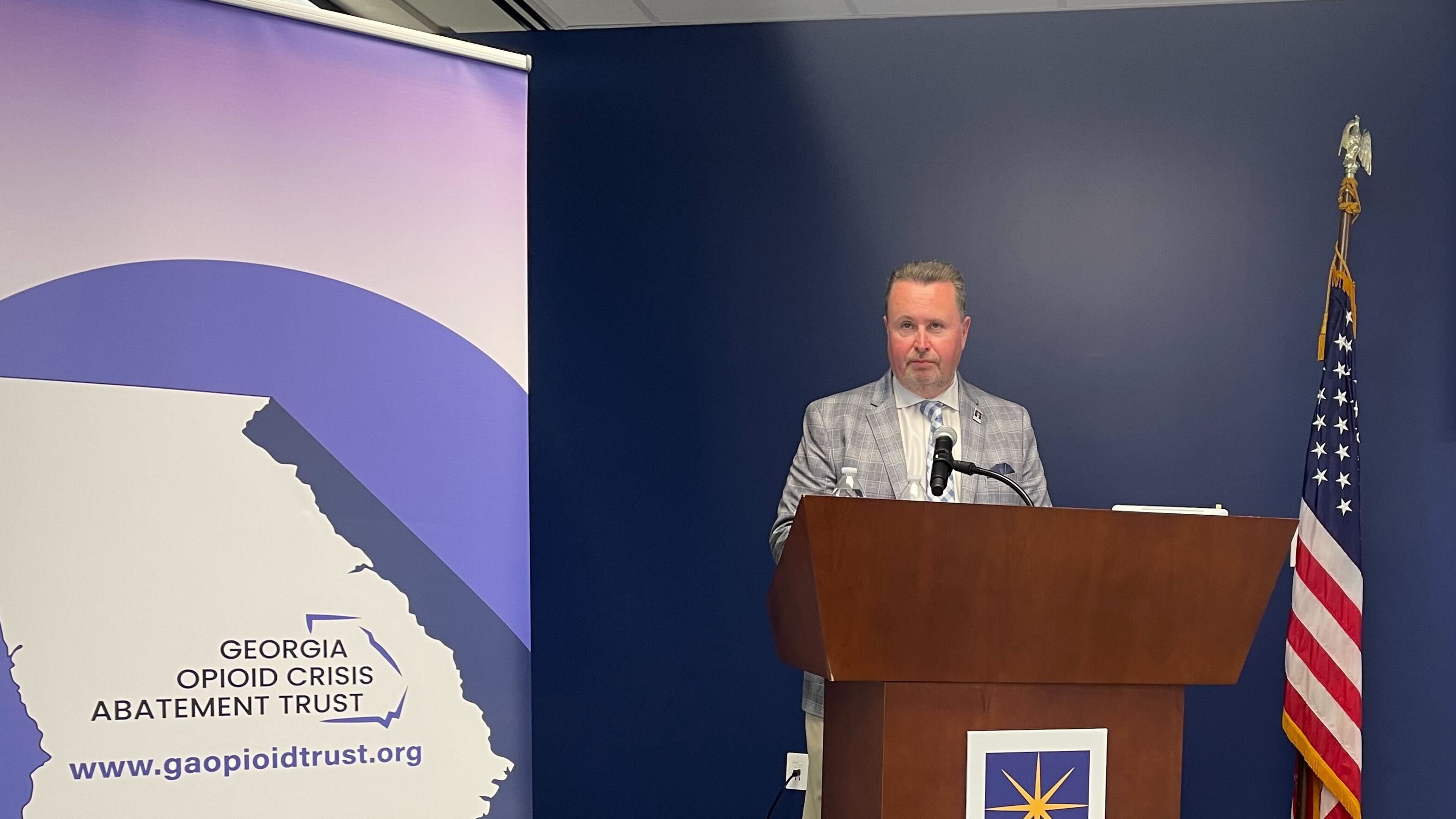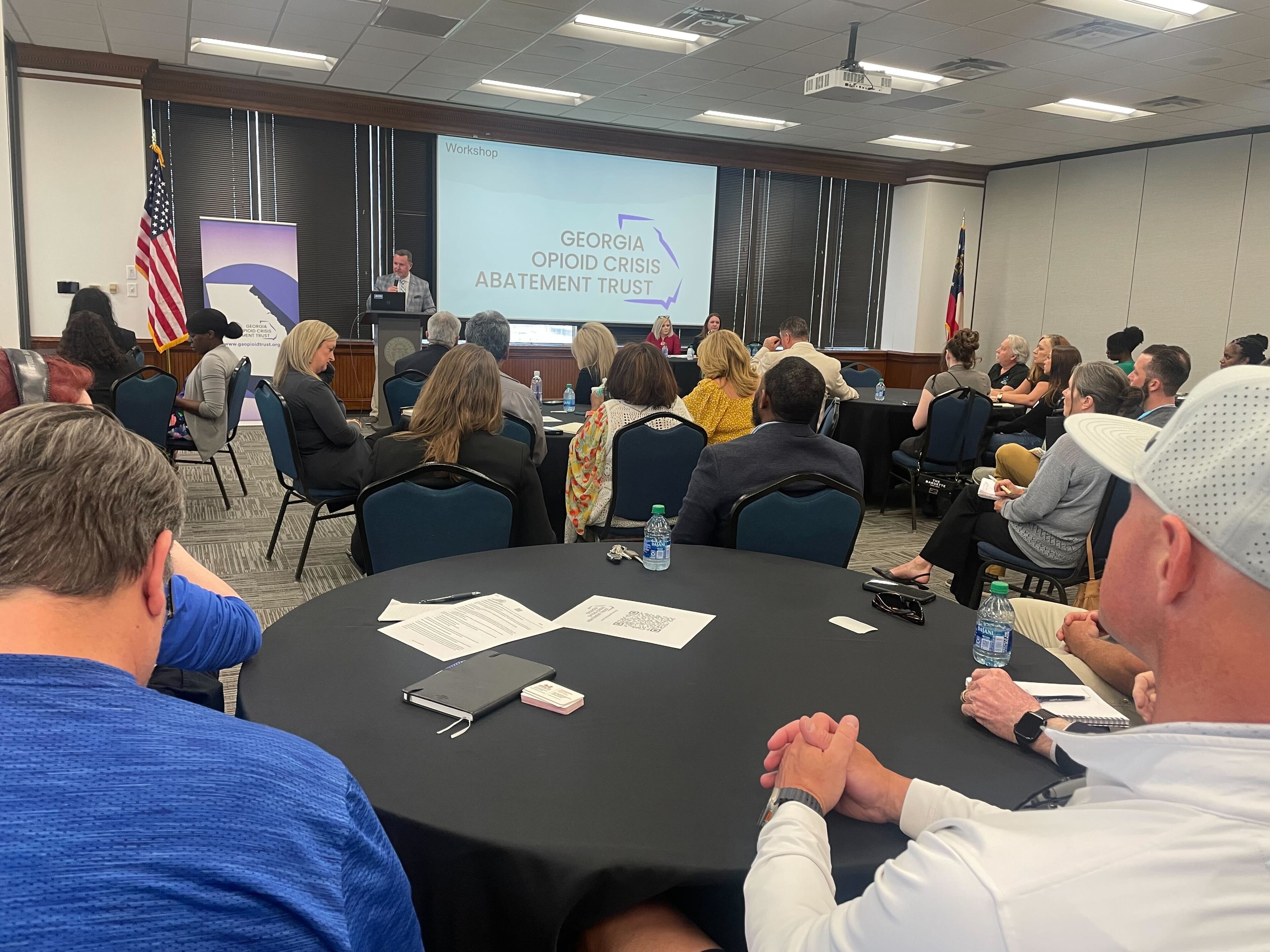Georgia sets up new grant fund for fighting epidemic of opioid deaths

Dozens of local government and nonprofit officials filed into a downtown Atlanta conference room Monday so they could learn how to apply for hundreds of millions of dollars in new grants for opioid addiction prevention, treatment and recovery services.
About $479 million will be deposited in a new state trust over 18 years. Called the Georgia Opioid Crisis Abatement Trust, the fund was set up to receive settlement money from companies that made or distributed prescription painkillers linked to the deadly opioid epidemic.
Georgia Department of Behavioral Health & Developmental Disabilities Commissioner Kevin Tanner, who leads the trust, said groups can start applying on April 15 for grants through a new website: www.gaopioidtrust.org.
Among other things, applicants can apply on that website to buy naloxone, an opioid overdose reversal medication; offer medication-assisted addiction treatment; and build new treatment facilities. The first grant award announcements are expected in the fall.
Tanner also highlighted a series of information workshops that will be held for applicants across the state in the coming weeks. Heavily attended, the first workshop took place near Georgia’s state Capitol.
“Nothing can be done to return those we lost to the opioid epidemic. But what we can do — what we must do — is work together to provide the means to end this crisis,” Tanner said. “We can work together on efforts to prevent and treat opioid addiction.”
In all, Georgia is set to receive $638 million as part of a $26 billion multistate settlement from 2021 with four companies: AmerisourceBergen, now called Cencora; Cardinal Health; McKesson; and Janssen, now known as Johnson & Johnson Innovative Medicine. Of Georgia’s settlement, $159 million is going directly to local governments.
The money is being distributed to states based on the quantities of opioids shipped to them, how many opioid-related deaths have happened within their borders and how many of their residents are suffering from opioid addiction.
Prescription opioids have proven effective in treating pain. But their misuse can lead to addiction and fatal overdoses. In Georgia, opioid-involved overdose deaths have more than doubled, rising from 554 in 2012 to 1,332 in 2020, according to the state’s Public Health Department.
Catoosa County Sheriff Gary Sisk estimated that on any given day about three quarters of the detainees in his jail are addicted to opioids. His sheriff’s deputies carry naloxone while on patrol across the county.
“Just on my way down here, before I left radio coverage, they were responding to a possible overdose,” said Sisk, who serves on the Georgia Opioid Settlement Advisory Commission. “We are usually the first there. We have naloxone and we have had a lot of saves because of that.”
Cencora, Cardinal Health and McKesson released a joint statement in 2021 about the settlement negotiations, disputing the allegations in the lawsuits and saying they “remain deeply concerned about the impact the opioid epidemic is having on individuals, families, and communities across the nation and are committed to being part of the solution.”
Johnson & Johnson also released a statement that year, saying: “We recognize the opioid crisis is a tremendously complex public health issue, and we have deep sympathy for everyone affected. This settlement will directly support state and local efforts to make meaningful progress in addressing the opioid crisis in the United States.”
Bridge Health, which provides addiction treatment services to people living in Catoosa, Chattooga, Dade and Walker counties, is preparing to apply for grant funding from the state’s new trust.
“Our area needs a crisis stabilization unit or a behavioral crisis center,” said Heather Roesner, Bridge Health’s CEO. “We are hoping we will be able to get one of those implemented up there in that area.”




